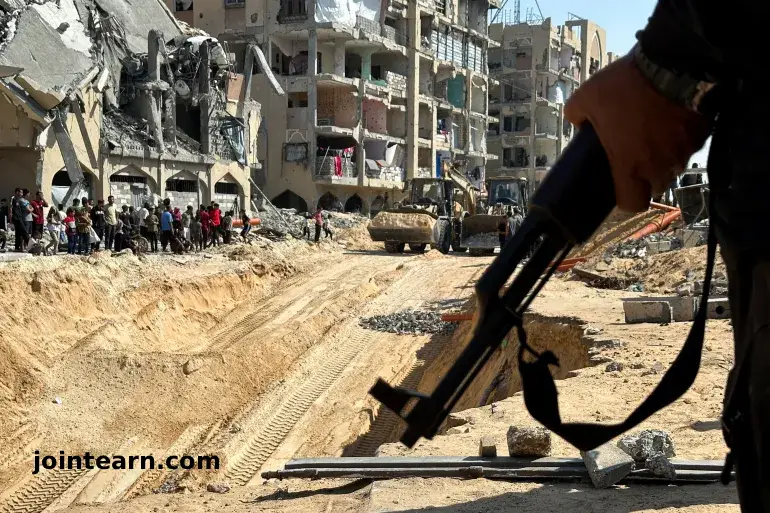
GAZA CITY — October 19, 2025 — The Palestinian group Hamas has strongly rejected accusations from the United States State Department, which claimed that the group was preparing to violate the ongoing ceasefire agreement with Israel. In a statement issued on Sunday, Hamas described the US allegations as “false, misleading, and an extension of Israeli propaganda,” accusing Washington of shielding Israel’s continued “aggression” and “occupation crimes” in Gaza.
US Claims of Imminent Ceasefire Breach
On Saturday, the US State Department announced that it had received “credible reports indicating an imminent ceasefire violation by Hamas against the people of Gaza.” The department called on mediating nations to ensure that Hamas complies with the US-backed ceasefire deal and warned that the United States would “take measures to protect the people of Gaza and preserve the integrity of the truce” should the alleged attack occur.
The statement, however, provided no evidence or specific details about the purported plot, prompting immediate backlash from Hamas and several regional analysts.
Hamas: ‘Baseless Allegations Meant to Cover Israeli Crimes’
Hamas issued a firm rebuttal, calling the US statement “a continuation of Israel’s deceitful narrative” and accusing Washington of providing political cover for Israel’s “ongoing violations” of the ceasefire agreement.
“The facts on the ground prove the opposite,” Hamas said. “It is the Israeli occupation authorities who have armed and funded criminal gangs that commit kidnappings, assaults, and theft of aid trucks. These actions have been publicly acknowledged by Israeli officials themselves.”
The group also claimed that its security forces in Gaza—operating with community support—were “pursuing these gangs and holding them accountable” in accordance with the law to “maintain public order and protect citizens’ property.”
Analysts: US Trying to ‘Fuel Division in Gaza’
Middle East expert Mouin Rabbani, a Palestinian-Dutch political analyst, told Al Jazeera that Washington’s claims appeared to be an “attempt to stoke internal conflict within Gaza.”
“This is an effort to create chaos and achieve what Israel has failed to accomplish militarily,” Rabbani said. “The idea that the US, which has supported Israel’s campaign for two years, is now defending Gazans defies logic and morality.”
Rabbani’s comments highlight a growing perception in the region that the US role in the ceasefire is increasingly viewed as partisan, with critics accusing Washington of ignoring Israeli violations while focusing scrutiny on Palestinian factions.
Ceasefire Under Strain Amid Continued Clashes
Since the US-mediated truce took effect last week, both Israel and Hamas have accused each other of breaching its terms. According to the Gaza Government Media Office, Israeli forces have committed nearly 50 violations of the ceasefire, killing 38 Palestinians and wounding 143 others.
“These are flagrant violations of the ceasefire decision and international humanitarian law,” the office stated, alleging that Israeli troops had targeted civilians and infrastructure despite the declared truce.
Israel has also faced criticism for failing to reopen the Rafah border crossing with Egypt, a key condition of the peace deal intended to facilitate humanitarian aid deliveries and allow Palestinian civilians to travel abroad.
Frustration over the closure has prompted Rawhi Fattouh, president of the Palestinian National Council, to call for the deployment of international protection forces in Gaza to ensure that the ceasefire is upheld.
Growing Pressure on the Ceasefire Agreement
Analysts warn that the fragile truce could unravel without stronger international oversight. Gershon Baskin, an American-Israeli peace expert, emphasized that Washington must take a more active role if it wants the deal to hold.
“If the Americans are serious about making this ceasefire work, they must be involved daily—sometimes several times a day—to ensure that both parties follow through,” Baskin said.
The ceasefire, mediated by the US, Egypt, and Qatar, remains one of the most significant diplomatic efforts in recent years to halt the violence in Gaza. However, the latest exchange of accusations underscores how mistrust and competing narratives continue to threaten its stability.
Leave a Reply